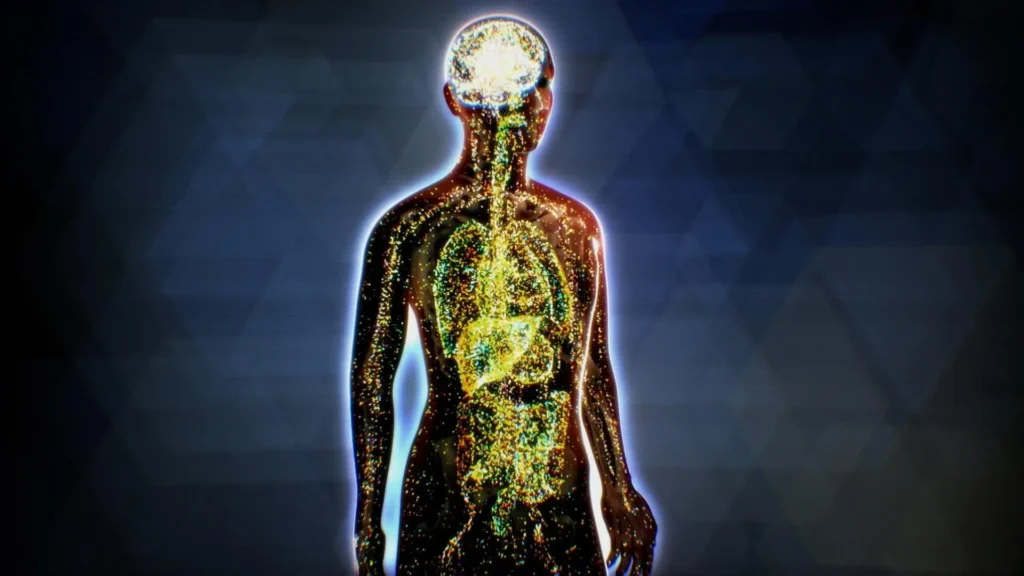Understanding the Endocannabinoid System: THC, CBD, and Other Cannabinoids Explained
Cannabis offers promising potential in healthcare. 🌱 Did you know your body has its own built-in system designed to interact with cannabinoids like THC and CBD? This system, called the endocannabinoid system (ECS), plays a critical role in maintaining homeostasis—helping regulate essential functions such as mood, appetite, pain perception, and immune response. Let’s explore how this system functions and why it holds significant potential for medical treatment and therapeutic applications!”
🌟 What Is the Endocannabinoid System (ECS)?
Think of the ECS as your body’s command center for balance (or “homeostasis,” as the scientists call it). It plays a crucial role in keeping your body functioning smoothly. The ECS is made up of three key players:
1️⃣ Endocannabinoids (Your Body’s Own Cannabinoids):
These are naturally produced molecules that work like messengers, traveling around your body and binding to specific receptors to deliver instructions.
- Anandamide (AEA): Known as the “bliss molecule,” it helps regulate mood, appetite, sleep, and pain. Fun fact: It’s the same molecule that gives you that runner’s high!
🔗 Read more about Anandamide here. - 2-Arachidonoylglycerol (2-AG): This multitasker supports appetite, pain regulation, immune function, and even protects your nervous system.
🔗 Explore 2-AG’s role in the ECS.
2️⃣ Receptors (CB1 & CB2):
Receptors act like “docking stations” waiting for cannabinoids to bind and activate them.
- CB1 Receptors: CB1 receptors are found primarily in the brain and central nervous system, playing a crucial role in regulating mood, memory, appetite, and pain. THC interacts directly with these receptors, influencing these functions. While THC is known for its psychoactive properties, these effects are dose-dependent and can range from mild to more noticeable depending on individual sensitivity and the amount consumed.
🔗 Learn about CB1 receptors and their function. - CB2 Receptors: CB2 receptors are located primarily in the immune system and peripheral nervous system, playing a key role in managing inflammation and immune function. They help maintain balance in the body by regulating immune responses and supporting overall health.
🔗 Learn about CB2 receptors and their function.
2️⃣ Receptors (CB1 & CB2):
Receptors act like “docking stations” waiting for cannabinoids to bind and activate them.
- CB1 Receptors: CB1 receptors are found primarily in the brain and central nervous system, playing a crucial role in regulating mood, memory, appetite, and pain. THC interacts directly with these receptors, influencing these functions. While THC is known for its psychoactive properties, these effects are dose-dependent and can range from mild to more noticeable depending on individual sensitivity and the amount consumed.
🔗 Learn about CB1 receptors and their function. - CB2 Receptors: CB2 receptors are located primarily in the immune system and peripheral nervous system, playing a key role in managing inflammation and immune function. They help maintain balance in the body by regulating immune responses and supporting overall health. 🔗 Learn about CB2 receptors and their function.
3️⃣ Enzymes:
Enzymes are responsible for breaking down endocannabinoids after they’ve carried out their function, ensuring the endocannabinoid system remains balanced and avoids overstimulation.

🌿 How Do THC and CBD Work with the ECS?
Cannabinoids like THC and CBD mimic your body’s natural endocannabinoids, acting as keys to unlock the ECS’s potential. Here’s how:
1. THC: The Activator Key 🔑
THC interacts directly with CB1 receptors in the brain and nervous system, offering therapeutic effects that extend beyond its euphoric properties:
- Pain Modulation: THC can effectively reduce pain by modulating pain signals, functioning as a natural “volume control” for discomfort.
🔗 Read about THC’s role in pain management. - Appetite Support: THC stimulates appetite by signaling the brain to promote eating, providing critical support for individuals experiencing appetite loss due to medical conditions or treatments.
🔗 Read about THC and appetite regulation. - Symptom Management: Research highlights THC’s potential in alleviating a variety of symptoms, including chronic pain, nausea, muscle spasticity, and appetite loss. These therapeutic effects make it a valuable option for improving quality of life in individuals managing persistent or treatment-resistant symptoms.
🔗 Read about THC and symptom management.
2. CBD: The Gentle Helper 🌸
Unlike THC, CBD doesn’t bind directly to receptors but influences the ECS indirectly. It’s like a coach, guiding the system to perform better.
- Calm and Relaxation: CBD interacts with serotonin receptors, helping reduce anxiety and promote a sense of calm.
🔗 Study on CBD’s calming effects. - Anti-Inflammatory: CBD’s ability to reduce inflammation makes it useful for conditions like arthritis and inflammatory bowel disease.
🔗 Research on CBD’s anti-inflammatory properties. - Epilepsy Treatment: CBD is even FDA-approved for certain forms of epilepsy, demonstrating its power to stabilize brain activity.
🌟 Beyond THC and CBD: Other Exciting Cannabinoids
The cannabis plant is a treasure trove of cannabinoids, each offering unique therapeutic benefits. Here are a few notable ones:
🌟 CBG (Cannabigerol): Often referred to as the “mother cannabinoid,” CBG supports nervous system health and helps reduce inflammation.
🔗 Discover CBG’s potential benefits.
🌟 CBC (Cannabichromene): A synergistic cannabinoid that enhances the effects of other cannabinoids, contributing to pain relief and overall well-being.
🔗 Learn more about CBC and its properties.
🌟 CBN (Cannabinol): Known as the “sleepy cannabinoid,” CBN has mild psychoactive properties and is associated with relaxation and improved sleep.
🔗 Explore CBN’s role in relaxation and sleep.
These cannabinoids are rising stars in symptom management, offering a wide range of therapeutic possibilities!
⚕️ How Can Cannabinoids Support Your Health?
Cannabinoids offer an incredible range of therapeutic possibilities, helping to restore balance and improve overall well-being. Whether it’s reducing chronic pain, calming anxiety, enhancing sleep quality, or supporting neurological conditions, these natural compounds may hold the key to unlocking a healthier, more vibrant life. Their gentle yet powerful effects provide a personalized path to symptom relief and better health.
Is It Safe?
When used appropriately, cannabinoids are generally safe and well-tolerated. However, working with knowledgeable healthcare providers is essential to ensure optimal results and avoid potential side effects. For instance, THC may cause anxiety in high doses, while CBD is widely regarded as safe but could interact with certain medications. Careful guidance can help you enjoy the therapeutic benefits of cannabinoids with confidence.
💡 Take the Next Step Toward Better Symptom Management
Are you wanting to explore how cannabis might help manage your symptoms? At Greenleaf Medical Clinic, we specialize in personalized cannabis care, focusing on finding effective solutions to address your unique health challenges.
🌿 Whether you’re seeking relief from pain, better sleep, or improved quality of life, we’re here to guide you every step of the way. Apply today to become a patient and discover how cannabis can support your journey toward symptom relief.
Start now to begin the process of becoming a patient!



